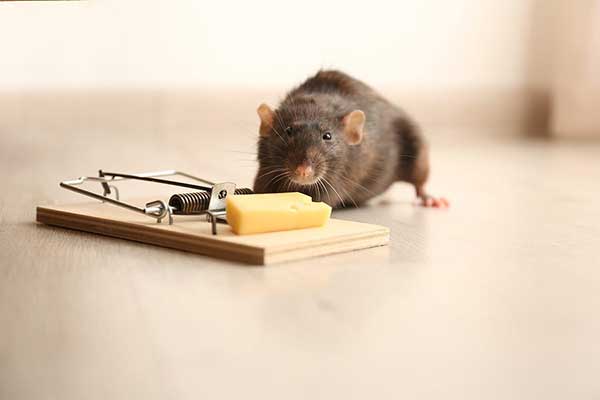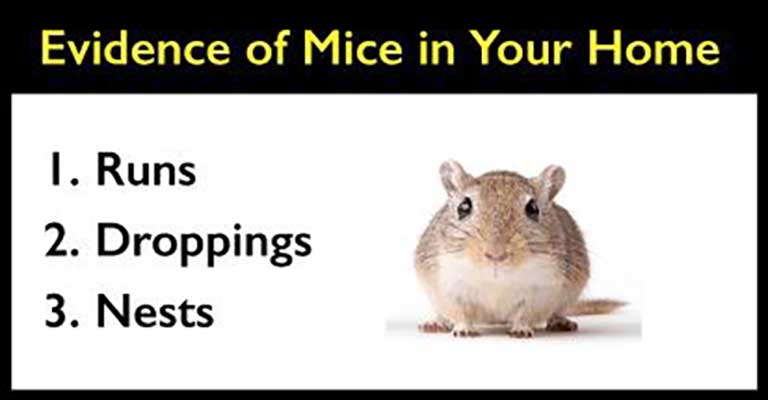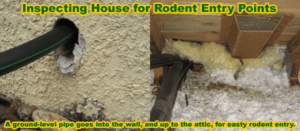Have you ever opened the kitchen drawer or pantry at night only for you to meet an unwelcomed visitor dashing out? There’s nothing as scary as having mice take refuge in your house. Although these creatures look harmless and innocent, they can be disastrous and dangerous. The little critters not only gnaw on nearly everything in your home, including electrical wires and clothing but also carry a slew of disease-causing bacteria. So, unless it’s a pet, you shouldn’t have any wild rodents in your residence.
These rodents come to your house for food, shelter, and warmth. For this reason, it becomes tough to eliminate mice once they infest your home. Therefore, the best thing to do as a homeowner is to make sure that they don’t get inside your property in the first place. Let’s go over some things your should know as a homeowner about rat and mouse infestations.
What Attracts Rats To A Home?
Like other mammals, rats need to maintain a warm body temperature to survive. So, the first thing that brings rats to your residence is shelter. Although these pesky rodents are active throughout the year, they particularly like to find warmth during winter. If your house is warm and has lots of places to hide, it is ideal for rats. Your home has everything a rat needs to survive. Also, the better the environment the longer a rats lifespan. This means your home is allowing them to thrive and increase populations sometimes on an exponential basis.
Rats may also camp in your house if food is readily available. If you toss your dirty utensils in the sinks, leave grains and other products uncovered, or fail to take your trash out when retiring to bed, you may be creating a rat-friendly environment. Additionally, rats also drink lots of water. So, unclosed tanks, containers, and trash cans may be the quenching areas for these rodents.
The surrounding of your house may also contribute to rats finding their way into your home. Woodpiles, shrubs, leaf piles, and bushes can provide a shelter where rats can hide before entering your house.
Why Is It Essential To Exterminate Rats From Your Home?
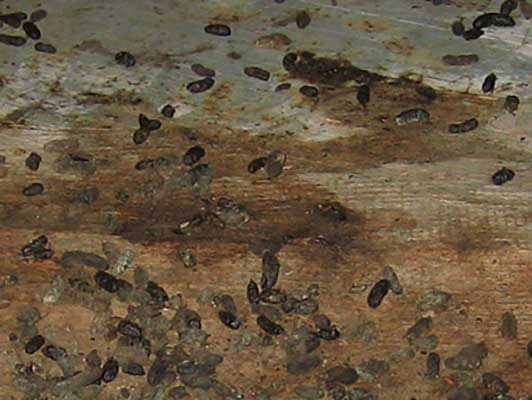
Although some homeowners don’t think that rat infestation is a serious issue, these rodents can have severe implications when they set camp inside your home. Here is why you should exterminate them as soon as possible include:
They are Disease Carrying Creatures
Having these rodents in your house puts you at risk of contracting rodent-borne diseases such as Hepatitis E, Maurine Typhus, Rat Bite Fever, and Trichinosis.
They Gnaw on Everything and Anything
Besides destroying grains and other edible products, rats sharpen their teeth by chewing various items in your house, including electrical insulation, electrical wires, furniture, papers, and even containers. A rat’s teeth never stop growing, so chewing and gnawing also acts as a way for them to control their teeth’ growth.
Droppings, Urine & Smears
Rats can also produce foul-smelling urine and leave droppings as they move around your house. The urine and droppings are a health hazard since they may transmit diseases. Rats also leave grease-like smears and smudges as they trudge along the walls and ceilings. They use the urine and grease scent to travel safe passages as they have minimal eyesight. This dirty look impacts the aesthetics and also the value of your home.
Rats are Disrespectful
Rats are non-rent paying tenants from hell! They won’t ask for permission to do anything. They stay in the loft, defecate on the kitchen counter or urinate all over your curtains. They can also nibble through walls and ventilation, compromising your home’s quality.
What Do Rats Eat?
The reason why rats are among the topmost destructive rodents in the world is that they can chew on anything. Thus, when it comes to their feeding, it depends on what is available. Rats are omnivores in nature, but they are also opportunist that can consume anything that smells nice. So, if they invade your home, these rodents can eat everything from pet food, fruits, insects, seeds, plants, and any human food. They scavenge through trash and can devour any food that’s left uncovered in the house.
It’s not uncommon to discover that rats have chewed even your favorite clothing, bedsheets, and even books. They’ve also been known to chew rough items such as wood, wires, cinder blocks, and even lead. Actually, rats’ presence is considered a fire hazard since they can chew electrical cables and wires.
Do They Bite?
Rats are not habitually biting creatures, but they can do so if they feel cornered. So, it is advisable to use recommended rat extermination techniques to get rid of them. Hunting them with a baseball bat or trying to catch them with bare hands can see you get painful bites. Besides the pain, their bites can cause rat-bite fever, a condition that can be fatal if not treated immediately.
How Long Do Rats Live?
Most homeowners wonder how old a rat can get, and they often think that the creature can overgrow and die without being exterminated. They tend to forget that rats reproduce rapidly, especially when they get enough food and the right conditions. It is crucial to understand how long a rat lives can depend on its species, its overall condition, and the environment’s conduciveness.
The average lifespan of a rat has been thought to be anything between one and two years. Most rat species live around one to two years. However, if your home offers ample living standards for these rodents, they can even last for more than three years. If rats are getting enough food and water in your house, this can extend their lifespan.
Although there’s no conclusive data on how long rats can last without food and water, most studies have concluded that the rodents can’t stay more than two weeks without them. However, this doesn’t mean that you can get rid of rats by starving them.
These creatures are creative and can start eating even clothes, cables, and books in your residence. Additionally, these rodents are known to store food that can last for a few days as they look for another food source. Considering how cunning and opportunistic rats are, getting rid of them requires a multi-step approach that only a qualified professional can achieve.
Rats are often referred to as baby-making machines. Females can mate up to 500 times in six hours. Once they conceive, rats can give birth to an average of six to eight young ones. Female rats have a gestation period of between 21 to 26 days. Brown rats are ready to give birth as early as three months as soon as they are born. While a rat’s lifespan is anywhere between one to two years, the University of Michigan suggested that 91% to 97% of them die within their first year.
Why are Rats Dangerous?
There are several reasons why having rats in your property or residence can be dangerous.
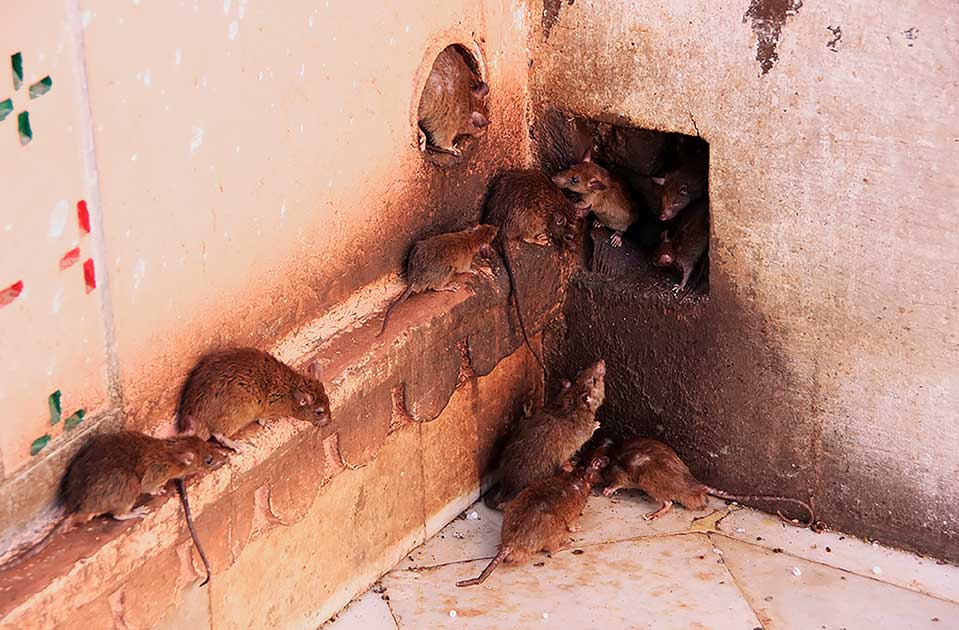
- Fire Hazard – As mentioned earlier, rats are fond of chewing anything on their path, including electrical wires and cables, and wooden beams. For this reason, they can cause fires if they cut electrical wiring on the walls or cables and wires on appliances. They can also cut through gas pipes, causing leakages that can result in deadly fires.
- Structural Damages – The fact that rats can chew anything when they are bored is enough reason to warn you that they can cause devastating structural damages to your property. These rodents have ridiculously sharp teeth that can allow them to gnaw through wooden parts of your home, including roof trusses, floor joists, headers, and frames. They can also destroy the drywall, plastic components, and even mild steel.
- Parasites, Pests, and Diseases – If you thought structural damage and electrical fires are all that rats can do, you’d be surprised to learn that they can carry and transmit diseases to humans. These rodents can harbor parasites and pests on their bodies, such as fleas and ticks, transmitting diseases.
The most worrying part is that the rodents can transmit various diseases through their feces, urine, and saliva. This means that you don’t have to any contact with these creatures to get sick. If you consume any food contaminated by rats by urine, feces, or saliva, you may contact the disease. Some of the disease they may carry include:
- Rat-bite fever
- Leptospirosis
- Hantavirus
- Bubonic plague
- Typhus
- Rickettsial disease
How Can You Keep Rats And Mice Out Of Your House?
Understanding the habits and behaviors of mice can assist in preventing them from entering the home. Mice look for specific areas to move in and out of a home and the biology of the rodent can assist in their ability to find entry points. When trying to prevent rats and mice from getting into your house and living rent-free, you should consider factors inside and outside your home. Since food is the main component that keeps these rodents in your place, your internal measures should be depriving them of this helpful resource. And since mice can only get inside your home if they have the means to do so, your external measures should help curtail their movements out of your property.
Internal Measures to Mouse-Proof Your House
- Tidy Up the Floors, Sinks, and Countertops
As mentioned earlier, the primary reason why mice find your house habitable is easy access to food. If you leave used utensils in the sink or spilled food scraps and spilled crumbs on the counter or floor, this may be an informal invitation for the mice. Ensure that you clean any food spills from the counter and the floor, and don’t leave dirty utensils in the sinks overnight.
- Store Dry Foods in Tightly Sealed Containers
Keeping your dry foods such as corn, flour, sugar, beans, and other cereals in bags and paper cartoons means that mice can get their daily meal in your house. Instead, make sure that you keep your food in tightly sealed plastic or metal containers. Once you cut short the rodents’ food supply, they will have no option but to vacate the premises and look for food elsewhere. Also make sure there are no sources of water that the rodents would be able to drink from.
- Take Out Your Garbage Every Night
Leaving your garbage in the house overnight allows the mice to have a food party at night and hide during the day. Therefore, make sure to take your trash and garbage out every day since it might be a rich food source for these rodents. Moreover, ensure that the garbage bins and cans are placed far away from the house or garage unless you have sealed them with airproof lids.
- Clear Out the Garage and Eliminate Any Piles of Paper or Clothing in Your House
Another essential item that your house might be offering to these invasive critters is a conducive nesting area. Piles of paper, clothing, and boxes make good nesting areas for mice. So, if there are areas of your house that are clogged with clothes, pieces of cotton, or piles of papers, it’s time to declutter and keep your home tidy.
- Get A Cat
Although this is not a professional way of dealing with mice, having a cat at your home can help repel any mice that want to make your property their home. Experts may argue that cats won’t eat mice if they are adequately fed, but their presence alone is enough deterring for these invasive rodents.
External Methods to Keep Mice Away from Your Home
- Seal all Cracks and Crevices that Provide Entry Points
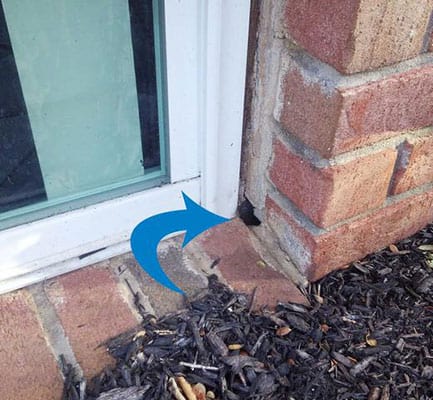
Did you know that a medium-sized mouse can fit in a dime-sized crack or hole? Now you know! Seal all the exterior gaps and cracks (including in the foundation) with steel wool, installing adequate door sweeps on exterior doors, and close all openings. It will help stop the movement of mice in and out of your house. Windows and doors should all close tightly. This includes all basement windows.
- Prune Overhanging Branches, Trim the Shrubs, and Take Care of Foundation Plants
Overhanging branches, unpruned shrubs, and unattended flower gardens can provide bridging and hiding points for mice as they scour for entry holes on the foundation or walls. Ensure that trees near your house are neatly pruned, and make sure that shrubs are perfectly trimmed. If you have foundation plants surrounding the house, ensure the garden is well-taken care of and plants kept at the appropriate sizes.
- Keep Your Yard Clean
Make sure there is no lose trash around. Clean areas behind wooden steps, under decks and any other sites that might provide shelter. Clean up pet droppings on and around the property daily. Pile wood and other storage materials away from walls and at least 18″ above the ground.
- Keep Bird Feeders Far from the House
There’s no doubt that mice love seeds and grains that are used to prepare bird-food mixtures. So, even if feeding these winged creatures is an admirable and noble hobby, you don’t want them to be the reason why you start competing with mice for space and food in your house. So, keeping the feeders as far as possible from your property is imperative. Don’t place any bird seed on the ground either.
- Set Traps on the House’s Perimeter
Although traps are known for catching mice inside the house, putting them around can help catch mice trying to get into your home. Additionally, they can also act as a deterrent.
Seek the Services of a Professional Rodent Exterminator
If you feel like your DIY rodent-proofing solutions aren’t bearing any fruit, don’t panic, as there are experts who can help you keep these invasive critters from your property. Professional rodent experts boast years of experience and possess the skillset, knowledge, and tools to help protect your home from rodents.
How To Get Rid Of Mice That Are In The Home
Seal all Mouse Entry Points:
Rodents get into and stay in your house because they’re definitely getting enough food and can easily access your home. If you thought that these rodents need a gaping half-circle hole to get into your house, you’re mistaken. Their small, flexible bodies allow them to fit in the tiniest cracks and gaps. A mouse can fit in a hole smaller than the circumference of your finger.
The first step to exterminating these creatures is to inspect your house’s outdoor area for possible cracks or spaces where they can squeeze through. Check the foundation, stairs, walls, and corners where the walls and roof meet to detect small crevices. Once you discover these rodents’ entry points, seal them to curtail their movement. And since mice are known to chew through various materials, consider using wire mesh or any steel material to cover the holes.
Mouse Traps
Once the house is “mouse-proof,” it is time now to deal with those who are competing with you for space and food. Setting traps may be one of the oldest techniques of dealing with mice, but it remains one of the favorites options for today’s homeowners. There are different types of traps in the market, and it’s up to you to choose the one that resonates with your family setting.
Typically, you’ll have to choose from no-kill traps and spring-loaded lethal traps. Using mousetraps is favored by many. It eliminates the need to use hazardous rodenticides and allows you to dispose of the trapped mice, thereby ensuring that your house is free from dead mouse odors. The traps should be positioned in places that mice frequent, such as gaps on walls or foundation holes, but away from kids and pets. Remember that rodents have litters of 5-6 every 45 days on average. Trapping may not get rid of the issue. If you are not trapping many rodents each month, you’re likely not reducing the population. Rodents will also increase breeding to make up for reductions in their numbers.
Snap traps are considered the oldest and least expensive method of killing rats. The traditional snap traps featured a wooden bar that anchored a spring that snapped once a rat stepped on the trigger. Newer plastic and steel traps come with sharp jaws that shut once the rat steps on the trigger. Homeowners should make sure that they place this trap away from pets and kids to avoid any injuries.
Live rat traps are a more humane way of getting rid of rats. Essentially, this type of trap comes with a door that swings open when a rat walks over the trigger plate. It then drops into a cage where they can’t get out. There are many types of live traps, and some can be made right at home.
Glue traps are made of a wooden or plastic bar covered with an adhesive that traps a rat when it tries to walk over it. This trap is placed in areas where rats frequent most, such as the basement, attics, and pantry.
Electric traps work like live traps in the sense that they use baits to attract the rats. Once a rat gets inside the bait area, the trap sends a lethal electric shock that kills the rodent.
Baits
Baiting is another popular method that is used to exterminate mice. Something that highly attracts the rodents is positioned in an area where rodents go regularly, where they are trapped or poisoned. Homeowners can add poison to the food bait and kill the mice once it eats feeds or set non-lethal traps where the mice get trapped when trying to go near the bait.
Usually, rodents love high-calorie foods, such as chocolate, peanut butter, and hazelnut spread. During winter, the mice create their nests utilizing various materials, such as dental floss, twine, cotton balls, and yarn. These can be drenched with rodenticides, and once the mice try to use these materials to build a shed, they inhale or ingest the poison and die. You can also use any other food that the mice are fond of eating in your residence as bait.
Natural Home Remedies
If trapping or killing mice isn’t your thing, you can opt for natural home remedies to banish these rodents from your residence. Here are techniques you can try:
Get a Cat
Getting a cat is one of the best ways to get rid of mice. However, it’s only applicable if there’s no one in your family with allergy problems. If you can’t get a cat for the above reason, you can buy a cat litter and smear on parts where the mice are seen frequently. It acts as a deterrent because it tricks the mice into thinking that the cat is around.
Peppermint Oil
Since mice don’t fancy the smell of peppermint oil, you can use it to drive them away. Saturate cotton balls with the oil and position them in areas, such as in the kitchen cupboards, drawers, and home entryways, where mice are commonly found. The smell will make the rodents uncomfortable and make them find refuge in another place.
Other natural repellents you can try with your rat problem are bay leaf, ammonia, castor oil, instant mashed potatoes, and baby powder.
Proper Sanitation
One of the reasons mice come to your house and multiply in population is getting enough food. One way to make sure that they start looking for a new place is maintaining cleanliness. Please make sure that you clean your utensils after eating and remove clutter every night.
Also, remember to remove or seal all potential mouse food sources. Keep snacks and pet food tightly closed and packed, store cereals in mouse-proof containers, and dispose of food waste immediately. Once the mice start realizing that there is no food in your house, they will try to look for other places when they can find nourishment and build their nests. This way, you can successfully control their population.
What To Do When You Hear Mice In Your Walls
Every year as Fall begins, we start to get the calls on how to get rid of mice in the walls. Autumn brings the fallen leaves and it also brings rodents looking for a place to spend the cooler nights. Here we share some keys to eliminating rodents in your home and some are obvious, and some are not. You can also check out our mice page in our pest library for more info. See below the facts and myths about rodents that can shape how we deal with mice and rats in our homes and properties for long term solutions.
Facts About Mice and Rats | How to Get Rid Of Mice In Walls
- #1 – Rodents Are Neophobic
Mice and rats are neophobic. The term neophobic means they fear new things within their environment. This is quite often how they have adapted to survive and have this learned genetic trait. This can make is especially difficult to trap by introducing stations or traps into the environment.
- #2 – Rodents Don’t Leave
Once rodents find a conducive environment they will breed, and they won’t leave the property. Specifically, people think once the warmer months come, they will go outside. They will indeed head out at some point, but will return to the nesting sites every day.
- #3 – Mice and Rat Traps Rarely Get Rid of Them
Unfortunately when mice are breeding inside your home or business, by the time you trap a few of them it’s too late. They have already had offspring and your back to the same population levels as when you started. 95% of the time the best way to eliminate rodents is to seal major entry points and establish a rodent baiting program to eliminate large numbers of rodent in your home or business.
- #4 – There’s Usually More Than You Think
We only see or come in contact to 5-10% of rodents that live in our home. To put it another way, most of the population doesn’t forage in our living space. This means that if you see one or two, there are most likely anywhere from 25-200 rodents in your home. This is because they stay away from us and they stick to continuous runways usually reserved for attics and basements. Also, they forage at night, meaning we are usually sleeping. Where there’s one there is almost always a lot more.
- #5 – Entry Point Size
Mice can fit into an opening just over half (.5) inch in size. This is roughly the size of a dime. Rats on the other hand can fit into an opening around 1.5 inches or a quarter. They can do this by squeezing the cartilage in their bodies. It’s no surprise mice can find a way in. It is almost impossible to seal off a standard home from rodent entry due to the size. We aren’t saying that you shouldn’t seal off area that make it easy for them to get in, but we have seen many homeowners spend thousands of dollars and hours of time with spray foam only to be defeated.
The measures listed above provide a baseline for keeping the rats at bay and will help prevent your property and home from becoming a breeding ground for future generations of these rodents. If you’re worried that you’ve already lost the battle, call EnviroPest Buffalo for a rat inspection today!
If you discover rats, mice or other rodents in your home, contact EnviroPest for immediate relief. Our certified team is educated in the most advanced pest control protocols and equipped with the state-of-the-art resources necessary for complete eradication of these pests. You can also sign up online or call. We’re the exterminators NY trusts and we look forward to discussing your issue.
